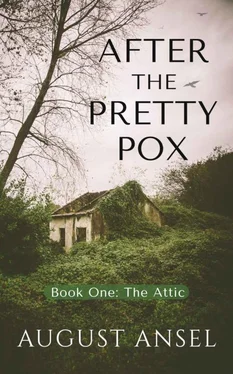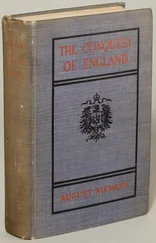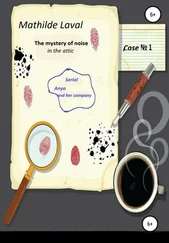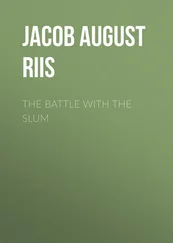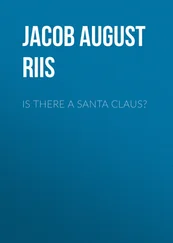“It’s likely different than you recall,” he said.
“One hopes,” she said drily. “I’ll put in my nickel as well, and we’ll see how the tale rounds out.” She got to her feet again, tucked the short spear back into her belt. “But that blather can all wait. As long as we have sun, we’re going to make hay.” She perused the rooftop. “My strategy in these two-ish years was to stay invisible, a mouse in the wall—and a rotted wall in the bargain. Nothing here for anyone to want or wager on. For an old woman alone, it worked fine.” She glanced around at them, each face expressing some species of sheepish guilt, and she made a little snort. “Oh, buck up,” she said. “If the old woman can shift gears after all this time, it should be easy enough for the likes of you three. But we need to buy some time.”
“How much time?” said Curran.
“Enough for your head to clear,” said Arie.
“I could travel now,” he said.
“But I can’t,” said Renna. Her face was creased with worry. “If I had to run…” Her voice broke.
“We’re not leaving anyone,” said Handy. He took Renna’s hand in his two. “Arie’s right. In a week, maybe a little longer, you’ll be ready. And you, too,” he told Curran. “I know how hard I hit you yesterday,” he said. He was calm and conciliatory but—Arie was glad to hear—not apologetic. “It’s a hard trip,” he said. “We need to be sound before we go.”
“This is exactly my point, Handy. Listen now,” Arie said. She felt a great energy and could see that they were feeling it, too. “It’s decided: a journey together. In order to make the journey, we must prepare, and quickly. To prepare well, we must be well, and to be well we must have some healing time, even if time is short. Do you see?”
They did.
“And at the heart of finding time, we must—must—have a safe place. It’s essential that we make a small fortress. We’re now visible, and visible equals vulnerable. As you said, Handy, Curran found us, so there’s no reason to think that others won’t. Today we fortify. Mouse in the wall is out. I want every one of you thinking about how we can best accomplish that.”
“Let’s do it,” said Curran.
Arie stood and began picking up the leavings of their meal. “The first thing I’ll do is see to everyone’s bandages,” she said. “If we don’t look like the wretched leavings of a hospital waiting room, I don’t know what. After I play doctor again, we’ll get to work.” She bustled around, scraping their few leftovers into a small bowl, which she handed to Curran. “Give this to Talus,” she said. “My worms can go hungry for a few hours.” She smiled around at them again, a pirate’s grin. “I’m thinking castle keep. Can your imaginations go there? I believe we could pull that off.”
The rules were simple:
By daylight, mend and buttress. By lamplight, cohere and conspire.
Renna did her part in the attic. At first, with the weather so mild, she angled to stay up top. But after talking it over, they all agreed it was risky—if she needed to get inside and no one was there to help, she’d be stuck on the roof.
“While we shore things up down below,” said Arie, “you’ll be doing strategic planning for the trip and acting as quartermaster.”
“A bean counter,” Renna said. “Busy work.”
“Yes, actually—someone needs to count the beans. Also the blankets, socks, tow sacks, and aspirins.” Renna had just changed the bandage on her hip herself while Arie watched; now she was walking from one end of the attic to the other, working the muscles and using Handy’s rhododendron stick to balance on. “Don’t flatter yourself, either,” Arie said. “No one around here is quite so precious that we can waste her on busy work. You’re just grunt labor like the rest of us, honey. Here, now.” She laid a piece of plywood, about two feet square, on the car seat. “You can use this as a lap desk.” On the board, she placed two sharpened pencils and a straightedge. “This, she said, “is precious. You know that, though.” She held up a spiral-bound notebook with a slightly dog-eared paper cover.
Renna stumped over and took the notebook, holding it reverently. “I do.” She rested her palm on the bright-blue cover, Mead stamped there in white. She lowered herself onto the sofa and put the plywood across her lap, placed the notebook squarely in the center, and straightened the pencils and ruler. Then she covered her mouth with one hand. Arie thought she was laughing, but Renna looked up and had tears on her face. She tried to smile, but that only made fresh tears roll down her cheeks. “It’s just—it’s something normal. Do you know what I mean?”
“I know.”
Renna picked up one of the pencils, sharpened to a fine, angular point with Arie’s knife. She held it to her nose and inhaled. “Oh, I love that,” she sighed. “The way the pencil sharpener smelled in school. In Mrs. Davis’s second grade at Alice Birney Elementary. The sharpener was bolted on the wall at the back of the room, by the sink. It smelled like this. And like tempera paint.” She shook her head and wiped her eyes with the back of her hand. “I always loved office supplies,” she said, and laughed, a broken little sound. “I used to steal them from work.”
Arie sat beside her. “Not enough here to steal, and you couldn’t run far if you did,” she said. “Handy’d come after you quick. Though I don’t suppose you’d mind getting caught then, would you.” Renna gave Arie an awkward sidelong look and kept silent. “No shame in it, girl,” Arie said. “Thus was the world ever pushed forward, with that hunger. It’s between you and him, at any rate.” She thumped a knuckle on the cover of the notebook. “Let’s put you to work. Here’s what you’ll do with this paper.”
Renna would begin with a manifest of their supplies, including Curran’s things from the stump house. “If we get a chance, we might make another quick run back there,” Arie said. “We had to leave quite a few things that would be good to have on hand. We’ll cross that bridge down the road, though. For now, let’s get clear on exactly what we have, and how much of it.” What she thought, but didn’t say, was that when the three of them were able to travel, they’d be able to more efficiently divide their stores between them—splitting out the best things to take on the road and what to leave for Arie. Over breakfast she had been careful not to say directly that she would not be going with them, and she intended to keep that information to her breast as long as she could. Her mind hadn’t changed on that point.
“After you make the manifest,” she said, “make a calendar, just a single month. I want us, all four, to have a quick point of reference. Best we set some concrete goals and stay on track. It makes the time pass, too.”
“A calendar,” Renna echoed. “But…what month is it?”
Arie knew from the flock of arrows cut into her own thighs that it was the end of October, but she didn’t say so. “What month do you want it to be?” she said. “Gracious, girl, make one up if you’ve a notion. Who’s left to tell you you’re wrong? Make it twenty-eight days, is my advice. Every woman follows the moon in one way or another. But I leave those details to you.”
Renna looked at her for a long moment and shrugged. “Okay,” she said. She looked interested, the way a child looks when given permission to name a puppy or choose what to eat for supper, more engaged than Arie had seen her since the day she’d come out of her fever.
“And the last thing,” she told her, “is crucial. You’re going to make a map. For that, you’ll need this.” She handed Renna a folded square of brown paper. It was an old grocery sack, meticulously cut so that it opened up into a large rectangle.
Читать дальше
